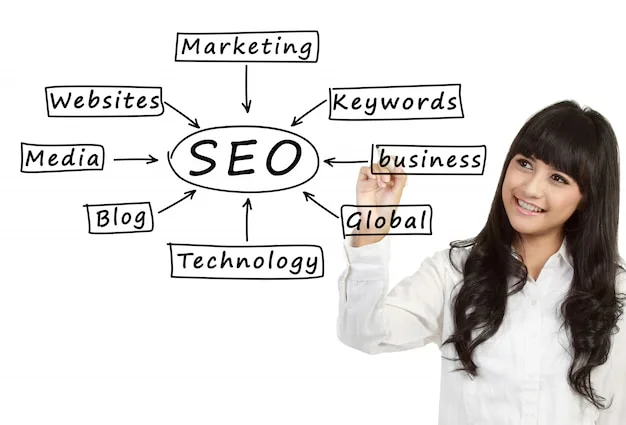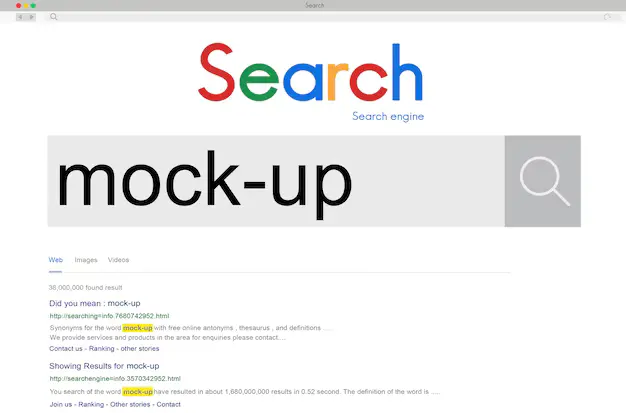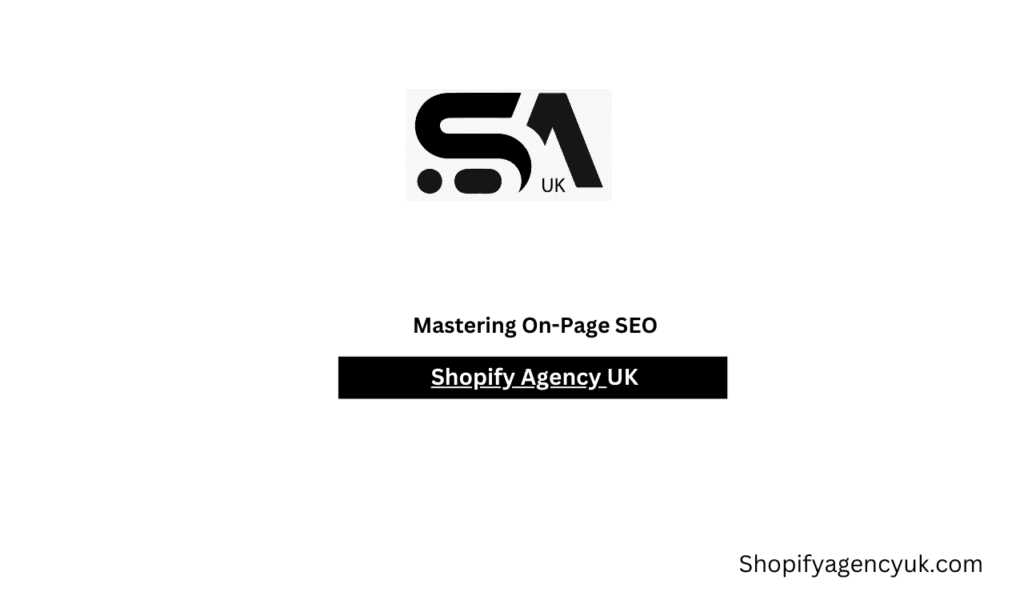Mastering On-Page SEO:
On-page SEO and Mastering On-Page SEO is of central importance in the business of digital marketing, to get out on top of the search engine results pages (SERPs) one has to master it like Shopify Agency Oxford. On-page SEO means optimizing individual web pages so that they get more visibility and are even easier to be indexed and ranked by the search engines like Google.
Especially on-page refers to the modulation of the layout of the content and HTML code of the pages which is friendly to search engine indexing whereas users enjoy the content too. Proper on-page optimization plays a crucial role in the proper functioning of the entirety of the SEO process which in turn results in higher rankings amongst the SERPs, and in user engagement as well.
This is a unique-by-unique solution article, I will reveal superhuman ways that will help you improve your on-page SEO, boost your marketing skills, and dominate local search results. Whether you are a business owner, marketer, or SEO professional, mastering these techniques will main quite the distance for your business.
Why On-Page SEO is Crucial for Online Visibility

On-page SEO is one of the most influential factors that determine how the search engines interpret the content on your site. In the process, both the content and the HTML source code are well-prepared for search engines and provide worthy content for users. The better your on-page SEO is the higher your site will be indexed, the more people click through the search engines to enter your site, and the more time they spend there will be.
The Connection Between On-Page SEO and Local SEO
The fine-tuning of on-page SEO technique will bring benefits even for businesses that depend on local customers. For instance, properly realized on-page SEO brings better your regular rankings in general as well significantly your local searches like we did for Shopify Agency Oxford. Google indeed looks at the local SEO when a customer searches for something in their immediate area
As part of your overall on-page SEO strategy, you should not forget that local SEO schemes should be greatly involved because without local SEO you might just stay a needle in the haystack; these two together can bear the greatest results. Unleashing advanced on-page SEO skills is one way, but while you do that, don’t forget to also come up with a great local SEO guide.
Advanced On-Page SEO Strategies for Higher Rankings
To truly master on-page SEO, you need to move a little bit further than just the fundamentals and deliberately take the extra mile to get on the search engine’s first page as well as to win over the users browsing the website, as well. Here are a few of these advanced strategies to improve your SEO performance.
1. Optimizing Title Tags and Meta Descriptions

Titles and meta descriptions are the foremost elements that users notice on the search engine results pages. Therefore, your website is likely to appear on search engines but relevant suffixes should be used to also entice clicks from users.
Best Practices of Title Tags:
- Make sure your main keyword like the topic of this website is put into the title, but on the other hand, that it comes in naturally.
- Keep the title tag to under 60 characters so that it can be distinctly and correctly represented on the SERPs.
- Use clear language and description that the user can understand and therefore decide to click.
- Thinking of powerful words such as “advanced” or “proven” or “best” has the primary role of attracting the attention of the user.
Optimizing Meta Descriptions:
- Optimum length of meta description should be between 150 and 160 characters.
- Review description and index the main keyword as early on as possible.
- Create an informative and engaging summary that highlights users’ content they will find on the page.
- Suggest a call-to-action that will attract visitors to generate clicks on “Learn more,” “Find out how,” and “Get expert tips.”
2. Structured Data and Schema Markup
Good news is that through the schema markup, the structured data, search boosts the quality of your web pages’ data which consequently raises the visibility of these pages in search results. This, in turn, has a big impact on both clicks and potential users’ conversion.
Advantages of Using Structured Data:
- Striking results on SERP with the additional information which was not there before, thus increase in click-through rates.
- The combination of local SEO and schema markup helps local businesses to experience better rankings as well as increased revenues
- Voice search benefits were huge because the relevance of the content was increased thanks to the structured data which search engines use to deliver the correct message.
Moreover, if you are using local businesses it is important to mark up the so that you can fully benefit from the local searches results.
3. Improving Content Relevance with Semantic SEO
Although the use of keywords has been for a long time the crux of on-page SEO, Google has made a huge shift by embracing the semantical search to focus on the real query of the user instead of just the matching of the exact keywords. First of all, the semantic SEO is the substitution of the keyword with other related keywords within the text to make it more relevant and more opportunity for it to appear in a wider range of search queries.
How to Operate Semantic SEO:
- Use LSI (Latent Semantic Indexing) keywords to convey your main idea in a broader sense to search engines.
- Write long-form type articles that answer users’ questions in a profound way to present sought-for information and to answer possible questions that people might ask.
- Focus on answering the real needs of users by thorough treatment of their queries without being redundant with keywords.
For instance, suppose your webpage is about the mastery of on-page SEO, you might include LSI keywords like “SEO optimization techniques,” “SEO tips for better ranking,” or “on-page optimization best practices.”
4. Optimizing for User Experience (UX) and Page Speed
Google confirmed that one of the significant factors that they are using to rank a page is the user’s experience. Achieving the main goal of the SEO, that is to increase the visibility of the site on SERP at the same time to make it mobile user-friendly, should be realized.
UX Aspects that Need to be Looked Out:
- Mobile-friendliness: Ensure that your site is responsive and performs perfectly on mobile devices as well. As more people resort to mobiles for their searches, this is a highly important feature.
- Webpages’ loading time has become vital because of the Core Web Vitals suggested by Google. Slow pages not only irritate users but starting from June 2021, they will be the ones who will be discouraged in search results. The PageSpeed Insights examination is the first step to a better performance.
- Website structure should be logical and straightforward thus it should be clear and easy for the user to travel through the pages of your site either by the well-linked menu, internal links, or by clicking on call-to-actions.
5. Enhancing Local SEO with On-Page Optimization
If you are after the attention of your local audience, you can’t ignore local SEO on-page optimization, an integrated part designed to focus. Local search optimization is one way to help you be identified and to bring greater of the relevant traffic.
Main Local SEO On-Page Optimization Techniques:
- Use the city, region, or service area in key on-page elements like title tags, meta descriptions, headings, and body content which will make your page relevant to local users.
- Creating separate location-specific websites for special branching activities can build local relevance.
- The local citation consistency in the information (Name, Address, and Phone number) that is displayed on your website and all external directories may enhance your ranking at the local SEO.
- The use of such keywords as “Oxford SEO services” or “the finest e-commerce agency in Oxford” as part of your content will make sure that your online business is provided with more conversions and at the same time, your clients will be able to find you easier.
Local businesses that establish local SEO guides and utilize location-based on-page schemes will get higher scores among users searching for items or services near them Shopify Agency.
6. Internal Linking for Enhanced SEO
Internal links are an unfashionable part of on-page SEO that most people often skip. But by making a properly structured internal link strategy, you will help Google understand the hierarchical depiction of your website and so important pages will appear in the search results.
Internal Linking Best Practices:
- Supplement your content with additional links to related pages in your content to provide more value and to make the user experience better.
- To have descriptive anchor texts that consist of the relevant keywords or expressions is a very good link-building strategy.
- It is important to make your major pages (for example, the services and product pages) be the major ones with internal links among each other.
Furthermore, internal links form a part of the link equity within the site which can benefit relevant pages of your site in terms of ranking.
7. Optimizing Images and Multimedia Content
The visuals, videos, and other multimedia items are add-ons to the content however they should be used effectively, which requires their proper optimization for SEO.
Ideas for Multimedia Optimization:
- Describe all the images using the alt text in keywords which are suitable to your text.
- Make an effort to restrict the size of images to avoid them unnecessarily slowing down your page load times.
- Responsive images improve the mobile user experience. Using them, the images can be displayed differently depending on the device type, resolution, screen size, and other entities.
- Including videos to your content would be a better idea if they are hosted on fast platforms because as a result, the videos will be a hit to the search engines’ engines an uploading transcript will ensure greater indexing as well.
FAQs
Why is on-page SEO important for rankings?
On-page SEO essentially helps the search engines in their efforts to better understand your content and meanwhile this makes the content friendly to search engines as well as user-friendly. Besides this, SEO on-site is really helpful to the content that is navigated correctly and successfully on the site through user engagement.
How does local SEO optimization fit into on-page SEO?
Local SEO optimization represents the aspect of improved clarity regarding the location of a particular business. As a strategic partner to the content the integration of local SEO with local content can be expected to provide the site with the localized SERP feature thus, the effect is seen through better ranking of the platform in the local search.
What are LSI keywords and how do they help with SEO?
LSI keywords are complementary keywords that give search engines an understanding of your content whether or not they are directly mentioned in it. These can be very good tools for building relevant content for semantic searches.
What is structured data, and how does it benefit SEO?
Structured data or schema markup is a set of tags/codes that are put on the webpage which help the search engines to understand the content of the page. They can enhance your appearance in SERPs using rich snippets which can boost click-through rates.
How can page speed impact my on-page SEO?
Quick website load times on a user’s device create a better user experience and are ranked as one of the main elements in Google’s ranking algorithm. Slow pages end up with both rankings and user satisfaction penalized.
Conclusion
Authority in on-page SEO work is the gateway to gaining better search engine rankings and better visibility on the web. Such strategies as local SEO, schema, and UX will help you beat out the other enterprises and facilitate long-term SEO success.
